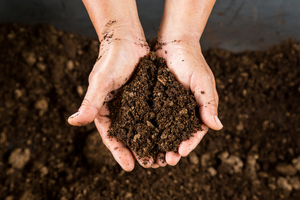First internal market report finds proposed peat ban does not raise major concerns for businesses
The OIM has published its first report, which found that the UK Government’s proposal to ban the sale of horticultural peat in England from 2024 would not have a major impact on intra-UK trade.

- Defra asked OIM in August 2022 to examine impact of its proposed ban of horticultural peat sales in England
- OIM finds no likely major impact on intra-UK trade
- Report is the first published by OIM since its establishment in September 2021
Horticultural peat is mainly used in multi-purpose compost. The market for compost is worth around £400m in the UK.
The report follows a request from the Secretary of State for Environment, Food and Rural Affairs for the Office for the Internal Market (OIM) – which sits within the Competition and Markets Authority (CMA) – to examine how the proposed ban may impact the effective operation of the internal market. The proposed ban is intended to tackle climate change by protecting peat bogs that are an important store of carbon.
The report concludes that, while the ban on horticultural peat sales in England may lead to some changes in patterns of buying and selling of peat-containing compost within the UK that could have an impact on individual businesses, these are likely to be modest in the context of the overall market. The OIM does not expect there to be a significant impact on wider competition within the compost market. More specifically, the report finds that the likely effect on intra-UK trade will be modest because:
- only one in 10 consumers is ‘strongly motivated’ to buy a peat-containing compost
- many large retailers have already made commitments to stock only peat-free compost by the time the ban is introduced
- most manufacturers have already invested in research and development and new facilities necessary to make peat-free compost. Many will switch from producing peat-containing compost to peat-free compost rather than exit the market
- the Scottish and Welsh Governments have also signalled their intention to ban the sale of horticultural peat
Nevertheless, the report also notes that there may be some sales of peat-containing compost after the introduction of the ban, most likely through a small group of retailers who will still be willing to stock it. In addition, the report finds that shortages of the necessary inputs, especially if they persist, will increase the incentives for manufacturers and retailers to bring peat-containing compost into England from elsewhere in the UK. Northern Ireland is the most likely source of peat-containing compost to be brought into England after the ban is implemented.
The use of horticultural peat across the UK has been in decline for the last 10 years. The Scottish and Welsh Governments have also signalled their intention to ban the sale of horticultural peat. The UK has been successful in producing peat-free alternatives – almost doubling its peat-free production in the past decade – but significant additional peat-free material will be needed in the coming years to replace the peat that is currently used.
Murdoch MacLennan, chair of the OIM panel, said:
The OIM’s first report is an important step in the OIM’s mission to support the effective operation of the UK internal market. Throughout the process of our review, we have held positive, engaging conversations with a range of businesses, consumers and governments to inform our work.
We stand ready to provide expert, independent advice to the 4 governments in the UK to assess the impact of any proposals they may put forward that could affect trade between the 4 nations of the UK.
For more information, visit the OIM website.
For media queries, please contact the press office via [email protected] or on 020 3738 6460.
Notes to editor
- The OIM was launched in September 2021 to provide, among other things, non-binding technical and economic advice to all 4 governments in the UK on the effect on the UK Internal Market of specific regulatory provisions that they introduce. The OIM operates independently of all 4 governments.
- Since leaving the EU, significant powers have returned to the 4 governments in the UK, increasing the possibility of regulatory differences between the nations. Under the UK Internal Market Act 2020 (‘the Act’), the OIM’s work assists governments in understanding how effectively companies are able to sell their products and services across the 4 nations in the UK and the impact of regulatory provisions on this for the governments’ consideration alongside their own wider policy issues.
- This request to the OIM by the UK Government (through the Secretary of State for Environment, Food and Rural Affairs), on its proposal to end the sale of peat in horticultural products, was made under section 34(1) of the Act, which provides that the OIM may at the request of a relevant national authority (or 2 or more acting jointly) give advice or provide a report on a proposed regulatory provision of the requesting relevant national authority. A ‘relevant national authority’ means the Secretary of State, the Scottish Ministers, the Welsh Ministers and a Northern Ireland Department.